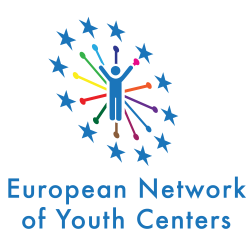In the final document of their 3rd Conference (Lisbon, 20-21 September 1990), the European Ministers responsible for Youth recommended the Committee of Ministers: “to charge the Governing Board of the EYC and EYF in collaboration with the CDEJ to carry out, on the basis of the fundamental principles of the Council of Europe’s youth policy, a feasibility study on the creation of a second European Youth Centre in a Central or East European country“. When adopting the Intergovernmental Programme of Activities for 1991 (449th meeting of the Deputies, November – December 1990, item 26, part 1) the Deputies broadened the scope of the feasibility study to include “means of extending training and co-operation in the youth field”.
The Intergovernmental Programme of Activities for 1991 has been prepared by the Secretary General and adopted by the Committee of Ministers in pursuance of Resolution (74)33 on the planning and programming of the Council of Europe’s intergovernmental activities.
Feasibility study of means of extending training and co-operation
Description and objectives
The Governing Board of the EYC and EYF, in collaboration with the CDEJ and the Secretariat, is charged to carry out, on the basis of the fundamental principles of the Council of Europe’s youth policy, a feasibility study on the means of extending training and co-operation in the youth field. This study would consider issues such as:
- the development of associative life in the framework of democratic and pluralistic structures,
- the training of leaders of youth organisations, intercultural education,
- youth mobility, facilitated by direct contacts between young Europeans.
The rapid development towards pluralist democracy achieved by certain States of Central and Eastern Europe has given rise to a very strong demand from these States for training and education about democratic life and the operation of genuinely pluralist institutions. This need is also felt in the youth sphere, in view of the fact that the organisations which used to have the monopoly on supervising and providing ideological training for young people have disappeared or started working in a pluralist
context. The development and intensification of exchanges of every kind among the States of Europe have shown how useful it is, in this context to have a place like the European Youth Centre, the facilities of which already in very great demand, where young people can go and where continuing training is available to them. One of the questions thus raised is the possible setting up of a second Youth Centre, which would not be “reserved” for East European countries, but a second working and meeting place, as open as Strasbourg. The possibility could also be examined of creating an itinerant structure, which could be of benefit both to existing member countries as well as new ones.
Working methods
It seems appropriate for this study to be carried out by a restricted group of experts selected by the Governing Board and working in close co-operation with the statutory bodies of the Centre and Foundation and the Secretariat. The members of the group could also, of necessary accompanied by the Secretariat, travel and carry out on-the-spot inspections at the invitation of member States or Parties to the European Cultural Conventions.
Working structures
The group would take the form of a group of experts and submit its report to all the statutory bodies in the youth field and, through the agency of the Secretary General, to the Committee of Ministers.
Duration and results
The group should have its report ready by the end of 1991, giving the statutory bodies and the Committee of Ministers time to familiarise itself with it and decide on follow-up action during the 1992 budget discussions.
Intergovernmental Programme of Activities for 1991 (Council of Europe) – page 116

